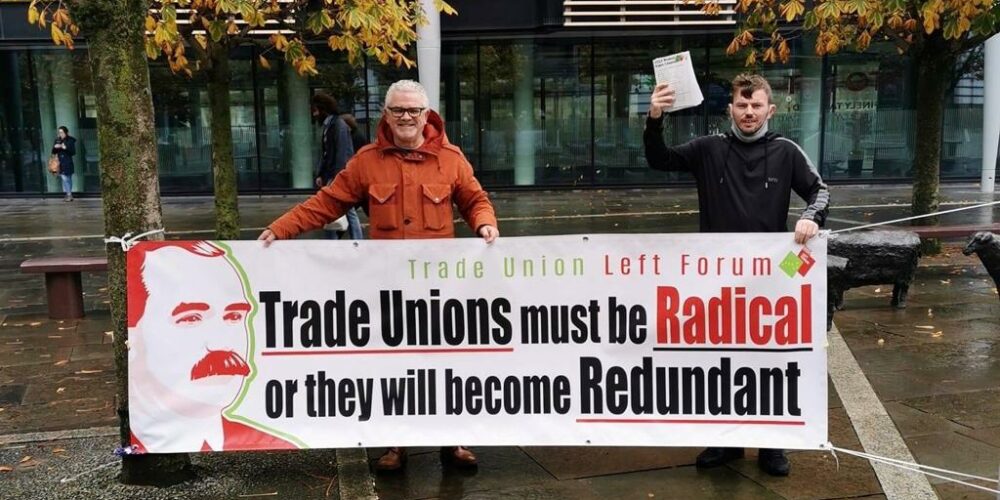The trade union movement (TUM) in Ireland is at a crossroads, with union density declining consistently and dramatically for years. It is now hovering around 25%. The age profile is rapidly increasing. The average age of a union member is 48 with 12% union density for under-30s. With these demographic trends, there will be no TUM in 50 years, and it will be in big trouble in less than 20. Trade Unions must be radical, or they will become redundant.
The ICTU biennial delegate conference was held in Belfast at the start of July. The conference is held every two years to debate and agree policy to plan strategy and set goals for the TUM. To this end, motions are put forward by trade unions and trades councils on the key issues they consider relevant for the TUM.
The Dublin Council of Trade Unions (DCTU) put forward two motions in a twin track approach to attempt to reignite the spark that once saw union membership close to 60% among workers back in the 1980s. On those figures with a total combined work force North and South today of just under 3.6 million there should be 2.2 million union members in Ireland: sadly there are just 800,000.
The first motion:
“mandates the executive to actively support and campaign in conjunction with, affiliated Trade Unions and trades councils to seek the support of government, political parties, Dáil deputies, senators, local authorities and wider society to reduce the 39-hour week to a 32-hour Four-Day week with no loss of pay for all workers.”
The last time there was a major reduction to the working week was 1964 the campaign was successfully led also by the Dublin Council of Trade Unions, and got the working week reduced from 45 to 40 hours. Of course, the employers said it would bankrupt the economy, businesses would become unprofitable, go bust and there would be mass unemployment. In reality quite the opposite happened: the economy boomed, as did profits. For a change, workers got a better share of what their labour was producing and union density skyrocketed.
If the DCTU were to be successful again in getting the working week reduced, it would be a great victory to the benefit of all workers and maybe be the catalyst for workers to re-engage with Trade Unions.
The DCTU then instructs Congress to act on a previous DCTU motion that was originally passed in 2021 but was never acted upon.
The second motion:
“instructs the executive to engage the experts needed to draft a Fair Work Bill to restore all rights lost by workers as a result of the 1990 industrial relations act and for the ICTU to launch a national campaign in conjunction with, affiliated Trade Unions and trades councils to seek the support of government, political parties, Dáil deputies, senators, local authorities and wider society to amend existing legislation and introduce a Fair Employment Act to this end.”
This is the second part of the twin track approach. On one hand, the Four-Day Week gives a benefit to all workers, while the second motion would give autonomy and power back to trade unions. Unions would have power to decide when and what action workers want to take and to offer solidarity to other workers to advance their demands. This would tip the balance of power back firmly on the side of workers.
The trade union movement has done more for the betterment of society than any other organisation of people. It is because of the trade union movement that we no longer have children working 16-hour days. Unions are not the bad guys: the rightful owners of that accolade are the employers who at every opportunity exploit workers, particularly young workers, women workers and immigrant workers. Precarious work and poverty wages are the norm for many workers today in Ireland despite “full employment”.
Employers continue take advantage of the 1990 Industrial Relations Act to get rid of shop stewards and for union-busting. They know under this legislation it can take many months if not years to bring an issue to a conclusion particularly where an individual worker is concerned.
The 1990 act de-commissions the foundation stone of the trade union movement: “An injury to one is the concern of all”. Solidarity is the rust-proof weapon of the working class. The 1990 act makes it illegal. As James Connolly said: “[L]egislation does not control the Lords of industry, it is the Lords of industry who control legislation”. This DCTU motion can tip the balance of power back towards workers with a Fair Work Act and take back the power that was lost in 1990.






